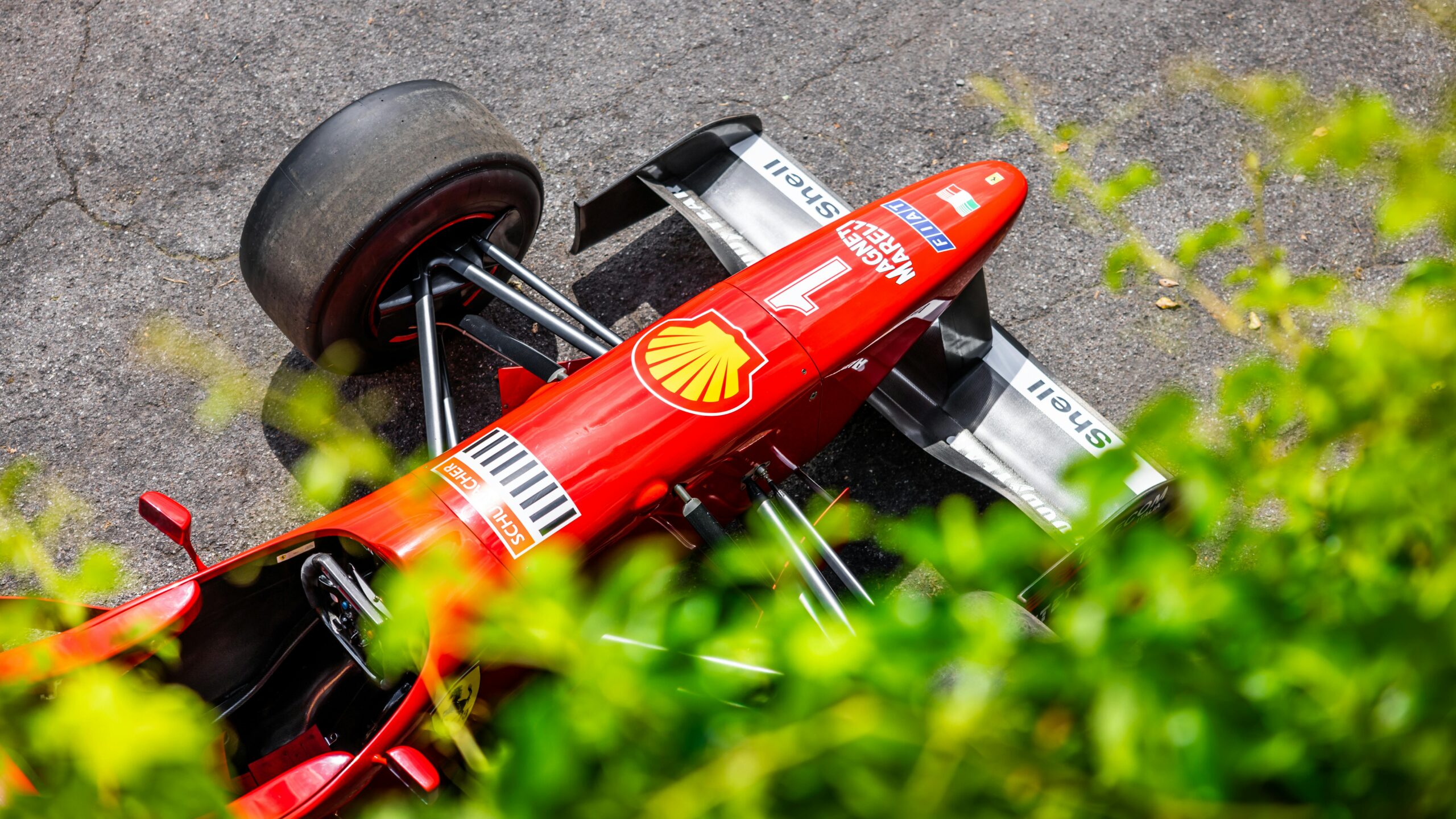So, here we are, diving headfirst into the weirdly thrilling world of F1 vs NASCAR: Sports Betting Differences — sounds straightforward, right? But nope, it’s way trickier than just picking a driver and hoping for the best. Why is no one talking about the real differences in how you bet on these two giants of racing? I mean, sure, both are motorsports, but the betting strategies, odds, and even the fan vibes couldn’t be more different. Not gonna lie, this surprised me too. If you thought placing a bet on an F1 race is like throwing money on a NASCAR event, maybe it’s just me, but you’re in for a wild ride.
Now, you’d think this would be obvious, right? But the key sports betting differences between Formula 1 and NASCAR go way beyond the obvious fast cars and tight corners. From fluctuating odds during a race, to the sheer number of participants, and even how weather impacts your bet, the dynamics shift completely. What if we’ve been wrong all along about how to approach betting on these sports? This article is gonna peel back the curtain on all those nuances — the stuff that makes F1 betting a totally different beast compared to NASCAR. So buckle up, because this isn’t your usual “here’s how to bet” guide — it’s more like uncovering hidden secrets that could up your game.
And hey, if you’re into sports betting trends or just curious about why punters swear by one over the other, stick around. We’re unpacking everything from race formats, betting markets, to the psychology of fans who swear by their favourite sport’s betting style. Trust me, by the end of this, you’ll be questioning everything you thought you knew about betting on F1 and NASCAR. Let’s jump in before the next race starts, shall we?
Top 7 Sports Betting Differences Between F1 and NASCAR You Need to Know
Alright, so you wanna dive into the wild world of sports betting but with a twist — comparing F1 and NASCAR? Honestly, I never thought I’d be writing about this at 2 am, but here we are. The “Top 7 Sports Betting Differences Between F1 and NASCAR You Need to Know” might sound a bit like clickbait, but there’s actually some legit stuff worth knowing if you’re gonna put your hard-earned quid on the line. Or maybe you just wanna sound clever at the pub when the conversation inevitably drifts to “F1 vs NASCAR: Sports Betting Differences.” Either way, buckle up, because this isn’t your usual dry stats dump.
1. Race Length and Betting Windows — It’s a Marathon vs. Sprint Thing
Right off the bat, F1 and NASCAR are like chalk and cheese when it comes to race duration. F1 races usually last about 1.5 to 2 hours, sometimes less, sometimes more if there’s a safety car or whatever chaos. NASCAR, on the other hand, can drag on for 3-4 hours — seriously, it’s like the endurance test of motorsport betting.
Why does this matter for betting? Well, in F1, the betting markets often close before the race starts or very shortly after the lights go out. NASCAR offers more in-race betting opportunities because there’s more time for things to change. If you like the thrill of live bets, NASCAR’s your playground.
2. Track Variety and Impact on Odds
F1 is basically a globe-trotter, with races on crazy circuits from Monaco to Suzuka. Each track has its quirks, and that’s reflected in the odds. A driver who’s a god on street circuits might tank on high-speed tracks. So, betting on F1 is as much about the track as it is the driver or team.
NASCAR? Well, it’s mostly ovals and a handful of road courses, mostly in the US. So, the track variety is less dramatic. This tends to make NASCAR odds more stable, but also more dependent on driver form and team strategy. If you think track knowledge is key, F1 is your beast to tame.
3. Driver and Team Dynamics — It’s Not Just About Speed
Here’s something not many casual bettors think about: in F1, the team matters almost as much as the driver. Mercedes, Red Bull, Ferrari — these outfits pour billions into tech and strategy. Betting on a top driver in a rubbish car? Nah, that’s often a mug’s game.
NASCAR teams are different beasts. While teams do matter, the racing is more about driver skill on the track, drafting tactics, pit stops, and sometimes sheer luck. So, when you’re comparing F1 vs NASCAR: sports betting differences, keep in mind that F1 bets might require more research into the engineering side than NASCAR.
4. Betting Markets — More Than Just Who Wins
If you thought you’re just betting on who finishes first, well, you’re in for a surprise.
F1 betting markets often include:
- Race winner
- Podium finishes (top 3)
- Fastest lap
- Qualifying results
- Championship winner
NASCAR, however, has a whole buffet of options because of the race length and format:
- Race winner
- Top 5, Top 10 finishes
- Stage winners (NASCAR splits races into stages)
- Head-to-head driver matchups
- Number of cautions or lead changes (yeah, really)
So, from a betting perspective, NASCAR offers more niche markets to explore — which can be great or just confusing as hell depending on your patience.
5. The Influence of Pit Stops and Strategy
Ever notice how F1 pit stops are lightning fast? Like 2-3 seconds tops. It’s an art form, and a failed stop can ruin a driver’s race instantly. So, in F1 betting, sometimes oddsmakers factor in team pit crew performance, which can be a bit of a headache to track.
NASCAR pit stops are longer and more frequent, and strategy plays a huge role — when to pit, tyre choices, fuel management. This means in NASCAR, betting can hinge on predicting team strategy as much as driver skill. Honestly, it’s like trying to guess the weather in April — tricky and often wrong.
6. Popularity and Betting Volume Differences
Not to get all “numbers guy” on you, but the sheer volume of bets placed on F1 vs NASCAR is different, and that affects odds and market liquidity. F1 has a more global audience, which means more money and sharper odds, especially on big events like the Monaco GP.
NASCAR’s fanbase is primarily US-centric, so if you’re betting from New York (which you might be, judging by the
How Does F1 Betting Compare to NASCAR? Key Insights for British Punters
Alright, so you’re sitting there wondering: How does F1 betting stack up against NASCAR? And more importantly, what on earth should a British punter know before diving headfirst into these two very different, yet oddly similar, worlds of motorsport gambling? Honestly, it’s not as straightforward as you might think. I mean, sure, both involve cars zipping round tracks at breakneck speeds, but the betting scene? Oh boy, that’s a whole different kettle of fish.
Anyway, let’s try to unpack this without losing the plot (or my mind).
F1 Vs NASCAR: Discover Key Sports Betting Differences Unveiled
First off, if you’re from the UK, you’re probably more familiar with F1 than NASCAR. F1 is this global, glamorous, high-tech spectacle with drivers zooming around some of the most iconic circuits in the world — Monaco, Silverstone, Spa-Francorchamps, you name it. NASCAR, on the other hand, is pure American muscle: stock cars banging around ovals, with a fair bit of bumping and scraping thrown in for good measure. It’s like comparing tea to… well, a can of energy drink.
But how does that translate into betting?
Market Depth and Variety
F1 betting markets tend to be more diverse. You’ve got outright winner bets, podium finishes, fastest lap wagers, qualifying results, and even more exotic stuff like head-to-head driver matchups. NASCAR betting? It’s a bit more basic, focusing mostly on race winners, top-5 or top-10 finishes, and sometimes stage winners because those races are split into stages. F1’s markets feel more sophisticated, probably because the sport itself is so layered.Race Format and Betting Impact
F1 races usually last around 1.5-2 hours with a single sprint to the finish. NASCAR events can run for hours longer and have multiple stages with breaks in between. This means NASCAR bettors can often place in-play bets during the race stages, which is less common in F1. Not really sure why this matters, but it does change your betting strategy.Data and Stats
For F1, stats are king. Every millisecond counts, and punters obsess over driver form, qualifying pace, tyre strategies, weather conditions, even the wind direction sometimes. NASCAR stats? Less granular, more about driver consistency, track type performance, and sometimes team strategies. If you’re the kind who loves crunching numbers and deep diving into stats, F1 is your playground.
F1 vs NASCAR: Sports Betting Differences in a Nutshell
Let’s do a quick table here because, honestly, it makes things clearer than me trying to explain it all in one go:
| Feature | F1 Betting | NASCAR Betting |
|---|---|---|
| Race Duration | ~1.5 to 2 hours | 3-4 hours or more |
| Betting Markets | Winner, Podium, Fastest Lap, Qualifying, Head-to-Head | Winner, Top 5/10, Stage Winners |
| In-play Betting | Limited, mostly pre-race | More common due to race stages |
| Popularity (UK) | High | Moderate to low |
| Key Stats | Lap times, qualifying, pit stops | Track type, driver consistency |
| Global Audience | Worldwide | Mostly US-centric |
| Betting Odds Fluctuation | Quite volatile due to small margins | More stable but can shift with race progress |
Honestly, the biggest shocker is how much NASCAR betting seems like a slower burn compared to the fast-paced adrenaline of F1 bets. It’s like F1 betting is a rollercoaster, NASCAR is a long, winding country road—both thrilling but in very different ways.
Why This Still Matters for British Punters (Even If You’re Not A Die-Hard Fan)
You may be thinking, “Why should I care? I barely watch NASCAR, and F1 is all I need.” Fair enough. But here’s the thing — if you want to diversify your betting portfolio or maybe just fancy a change from the usual football and cricket wagers, these motorsports offer something unique. Plus, with the rise of online betting platforms, you can access both sports with ease, even from the UK.
Also, betting strategies differ a lot, so knowing the nuances can save you from making silly mistakes. For example:
- In F1, starting grid positions hugely influence your bet — qualifying is like the half-time show you can’t miss.
- In NASCAR, because of the long race and multiple stages, it’s often about endurance and timing your bets during the race.
And, um, don’t even get me started on the impact of weather in F1. Rain can turn
Exploring the Most Profitable F1 vs NASCAR Betting Markets in 2024
Alright, here we go. So, if you’re into betting (or just pretending to be) on motorsports, you’ve probably wondered: what’s the deal with F1 vs NASCAR betting markets in 2024? Like, seriously, why are these two even compared? I mean, Formula 1 and NASCAR are like apples and… well, really fast apples but with totally different vibes. Anyway, this is gonna be a bit of a ramble about the most profitable F1 vs NASCAR betting markets, how they differ, and why some folks swear by one or the other. Buckle up, this might get bumpy.
Exploring the Most Profitable F1 vs NASCAR Betting Markets in 2024
First off, let’s tackle the obvious stuff — where’s the cash? Betting markets for F1 and NASCAR have evolved loads over the years, but they don’t exactly overlap like peanut butter and jelly. More like peanut butter and, I dunno, pickles? Weird combo but you get what I mean.
F1 betting markets tend to favour things like:
- Race winner odds: Classic. You pick who’s gonna take the chequered flag.
- Podium finish bets: Sometimes you bet on a driver to finish in the top three, which is a bit safer.
- Qualifying bets: Who’s going pole position? Important because F1 tracks often make starting position crucial.
- Championship winner bets: Betting on who’ll win the whole season — a long game and a bit nerve-wracking.
NASCAR, on the other hand, has its own quirks. The races are longer, more laps, and there’s this whole “stage” thing that complicates betting but makes it… interesting? I guess.
NASCAR favourites include:
- Stage winner bets: You bet on who wins individual race stages, which breaks the race into smaller chunks.
- Race winner: Like F1, but with a much more chaotic race dynamic.
- Top 5 or Top 10 finishes: Since NASCAR races have a bigger field, betting on finishing within a certain range is popular.
- Driver head-to-head: Betting on which of two drivers finishes higher.
Now, profitability? Well, that depends on your knowledge, and luck, but also the odds offered. F1 markets can sometimes be tighter because the sport is dominated by a few teams (looking at you, Mercedes and Red Bull), so the odds might be less juicy for favourites. NASCAR’s more unpredictable nature means odds can swing wildly, which sometimes means better profit opportunities — if you know what you’re doing.
F1 Vs NASCAR: Discover Key Sports Betting Differences Unveiled
Okay, now here’s the bit that might get a bit dry but bear with me. The fundamental differences between F1 and NASCAR betting go beyond just the type of races.
| Aspect | Formula 1 | NASCAR |
|---|---|---|
| Race Length | Around 1.5 to 2 hours | Usually 3-4 hours or more |
| Race Format | Single continuous race | Multiple stages within one race |
| Number of Competitors | 20 drivers | Around 40 drivers |
| Track Types | Circuits, street tracks | Ovals, road courses |
| Dominance | Few teams dominate | More parity, unpredictable outcomes |
| Betting Markets Variety | Focus on race and championship winners | Includes stage winners, finishing positions |
| Odds Volatility | Generally more stable | More volatile, with surprise winners |
Honestly, this table barely scratches the surface but helps frame why someone might prefer one over the other. F1 is more about precision, engineering, and tiny margins. NASCAR is like a high-octane free-for-all, with bumping and strategy that’s less predictable.
F1 vs NASCAR: Sports Betting Differences — Wait, What Was I Saying?
Oh, right. The betting differences. So, the main thing you gotta remember is that NASCAR betting markets often offer more varied options due to their race structure. That can be both a blessing and a curse — more ways to lose your money! 😂
Also, F1’s popularity worldwide means its betting markets are more global, with tighter odds because bookmakers have way more data and smaller margins. NASCAR bets might be more popular in the US, and sometimes the odds reflect a bit more uncertainty, which can be profitable if you spot a good underdog.
Oh, hold on — sorry, had to grab a coffee — anyway…
Back to the juicy bits: One interesting thing is how live betting works for both. F1’s fewer overtakes and strategic pit stops mean live odds change differently compared to NASCAR’s constant wheel-to-wheel action. So, if you like to bet in-play,
F1 vs NASCAR: Which Motorsport Offers Better Odds for UK Sports Bettors?
Alright, so here we go—F1 vs NASCAR: Which Motorsport Offers Better Odds for UK Sports Bettors? Honestly, trying to pick a clear winner here feels like choosing between fish and chips or a curry on a rainy night—both have their charm, but also their quirks. Anyway, I’ve been poking around the interwebs, betting forums, and some dusty old motorsport stats, so I’ll try to untangle this mess for you. Buckle up.
F1 vs NASCAR: Sports Betting Differences — The Basics
First off, Formula 1 and NASCAR are like apples and… well, slightly more complicated apples. Both involve cars, speed, and folks trying to win, but the whole vibe and betting scene couldn’t be more different. F1 is all about precision, high-tech wizardry, and, let’s face it, a bit of posh snobbery (not that I’m judging), whereas NASCAR is more of a down-to-earth, ‘let’s see who can circle a track the most times without crashing’ kinda deal.
For UK bettors especially, these differences matter because they shape how you place your bets and what odds you can get.
Why This Still Matters (I Guess)
You might be thinking, “Why do I even care about F1 vs NASCAR odds?” Well, if you’re into sports betting, especially from the UK where F1 is a bit of a national treasure (hello Lewis Hamilton), knowing which motorsport gives you better bang for your buck isn’t a bad move. Plus, the two series have wildly different race formats, driver line-ups, and even fan cultures—so it’s not just about the cars.
Here’s a quick heads-up:
- F1 races happen globally, with circuits that vary wildly (street circuits, high-speed tracks, rain-affected chaos)
- NASCAR mainly sticks to oval tracks in the US, with a few exceptions
- Betting markets differ: F1 often has more diverse options (pole positions, fastest laps), NASCAR tends to focus on race winners and points standings
Odds and Betting Markets: A Quick Comparison Table
| Aspect | F1 | NASCAR |
|---|---|---|
| Race Type | Single race, 50-70 laps, varying circuits | Many laps (usually 200+), oval tracks mostly |
| Popular Betting Markets | Race winner, podium finish, fastest lap, qualifying | Race winner, stage winner, points leader |
| Odds Volatility | High—weather and strategy can flip odds fast | Medium—more predictable but accidents still happen |
| UK Bookmaker Coverage | Widely available | Limited but growing |
| Betting Popularity | High in UK and Europe | Much bigger in USA, niche in UK |
See, it’s not just about which sport is faster or cooler; it’s about what kind of bets you wanna make and how much info you can get your mitts on.
F1’s High-Tech Drama vs NASCAR’s Gritty Marathon
Now, not gonna lie, F1 betting can be a headache if you’re not into the tech talk. There’s this whole world of tyre strategies, pit stops, weather forecasts, and team orders that make the odds swing like a pendulum. One minute Hamilton’s favourite, next, a rain shower and a safety car bungle means he’s trailing behind some underdog rookie. For UK bettors, this unpredictability can be a double-edged sword—great for big payouts, but also easy to get burned.
NASCAR, on the other hand, feels a bit like that mate who always shows up late but steady. The races are long, and while crashes (or “the big one”) happen, the betting markets are somewhat more stable. Plus, because NASCAR’s mostly US-based, UK bookmakers sometimes don’t give the same love as they do for F1. So, you might find fewer options or shoddier odds, which is a bummer.
Sorry, Had to Grab a Coffee — Anyway…
Okay, back. So, about the odds: F1’s markets tend to offer more variety, but that also means you need to do your homework. The sport is super technical, and sometimes, the favourite wins simply because their car is a beast. But then again, betting on something like “fastest lap” or “qualifying winner” can spice things up.
NASCAR’s betting is more straightforward—you bet on who wins the race or stages within the race. Less to wrap your head around, though the length of races means patience is key. If you’re after quick thrills, NASCAR might feel a bit slow—like waiting for a kettle to boil.
The Fan Factor and Its Impact on Betting
Something that often flies under the radar is how fandom affects odds. In the UK, F1’s popularity
Unveiled: Expert Tips to Maximise Your Winnings on F1 and NASCAR Bets
Alright, so you wanna dive into the wild world of betting on F1 and NASCAR, huh? Well, strap in because these two sports might seem like they’re all about fast cars and roaring engines, but when it comes to wagering, they’re as different as tea and coffee. Or, wait, maybe more like tea and energy drinks? Honestly, sometimes I get muddled with these sports, but let’s try to unpack this madness — and hopefully, you’ll walk away knowing how to squeeze the most out of your bets without feeling like you’ve been mugged off.
Unveiled: Expert Tips to Maximise Your Winnings on F1 and NASCAR Bets
First off, here’s the thing: betting on motorsport isn’t like throwing coins in a wishing well. There’s some method to the madness, even if it feels like pure luck half the time. Experts (whoever they are) say that understanding the nuances of each sport is your best shot at not losing your shirt. For example:
- Study the Track: Different circuits have different quirks. Silverstone’s wet weather? That’s a game changer for F1. Daytona’s banking? Crucial for NASCAR.
- Keep Up With Team and Driver News: Injuries, technical upgrades, or even internal drama can swing odds dramatically. If you thought a driver’s just ‘having a bad day’, think again — there’s usually more going on.
- Weather Conditions Matter: Sounds obvious, but you’d be surprised how many punters ignore this. Rain in F1 means chaos, while NASCAR might see more cautious driving.
- Look Into Qualifying Results: Not just race day, but where drivers start can tip you off on their chances.
- Use Different Bet Types: From outright winners to who leads the most laps, mixing bet types can diversify risk. Don’t put all your eggs in one basket, yeah?
Honestly, these tips sound basic, but you’d be shocked how many folks bet blindly. Maybe it’s just me, but I feel like a lot of people treat F1 and NASCAR like a scratchcard — random and hopeful.
F1 Vs NASCAR: Discover Key Sports Betting Differences Unveiled
Okay, now this bit’s where I kinda zone out — but let’s soldier on. F1 and NASCAR are both motorsports, but they couldn’t be more different when it comes to betting. Here’s why:
| Aspect | F1 | NASCAR |
|---|---|---|
| Race Format | Usually around 305 km, ~1.5-2 hrs | Usually 300-600 miles, 3-4 hrs |
| Number of Drivers | 20-ish | 40+ |
| Tracks | Road courses, street circuits | Oval tracks, some road courses |
| Overtaking | Difficult, strategy-heavy | More frequent, aggressive |
| Weather Impact | Huge | Less, but still relevant |
| Bet Types | Outright winner, podium finishes, fastest lap | Race winner, top 5/10 finishes, stage winners |
| Season Length | ~20-23 races | ~36 races |
See? F1’s all about precision, technical prowess, and strategy, while NASCAR is more like a long, drag-out brawl on wheels. This means your betting approach has to adapt — you can’t just copy-paste your strategy from one to the other.
F1 vs NASCAR: Sports Betting Differences – Why Should You Even Care?
So, why bother learning these differences? Well, I mean, if you wanna actually win money (rather than just entertain yourself pretending to be a bookie), it kinda helps. For instance:
- F1’s unpredictability comes from complex variables like tyre wear, pit stops, and fuel strategies. If you bet without considering these, you’re basically guessing.
- NASCAR’s longer races and larger fields mean that endurance and consistency often beat outright speed. Plus, the sheer number of drivers means there’s more ‘noise’ in the betting market.
- Odds fluctuate differently: In F1, a single driver’s mechanical issue can change the entire race outcome, whereas in NASCAR, crashes and cautions can shuffle the deck multiple times per race.
- Betting markets vary: F1 tends to have more exotic bets (like fastest lap) which can be lucrative but tricky. NASCAR offers stage betting — bet on who wins a specific portion of the race — adding layers to your strategy.
Honestly, grasping these nuances feels like trying to learn a new language while someone keeps changing the alphabet. But it’s essential if you want to stop burning cash and start making some.
Sorry, had to grab a coffee — anyway…
If you’re serious about upp
Conclusion
In conclusion, while both F1 and NASCAR offer thrilling racing experiences, the nuances in their sports betting landscapes are distinct. F1 betting tends to focus on strategic elements such as qualifying positions, team performance, and driver skill across diverse international circuits. In contrast, NASCAR betting often revolves around endurance, track familiarity, and frequent race events predominantly in the United States. Understanding these differences is crucial for bettors aiming to make informed decisions and maximise their chances of success. Whether you prefer the high-speed precision of F1 or the intense, close-quarters competition of NASCAR, recognising how each sport’s unique characteristics influence betting markets will enhance your overall experience. For enthusiasts looking to explore sports betting, starting with thorough research and using reputable bookmakers tailored to each racing style is highly recommended. Embrace the excitement of motorsport betting and enjoy the ride, whichever racing series you choose to back.












